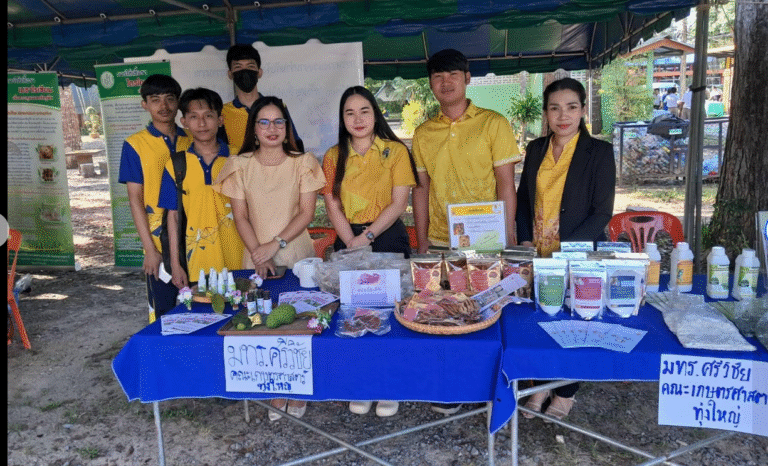Reporters :
Assco. Prof. Chuinut Sujarit, Asst . Prof. Somboon Prasongchan, Asst. Prof. Nutworadee Kanittinsuttitong, Asst . Prof. Natta Kachenpukdee
Evidence Date : 17 September 2024
Related SDGs:
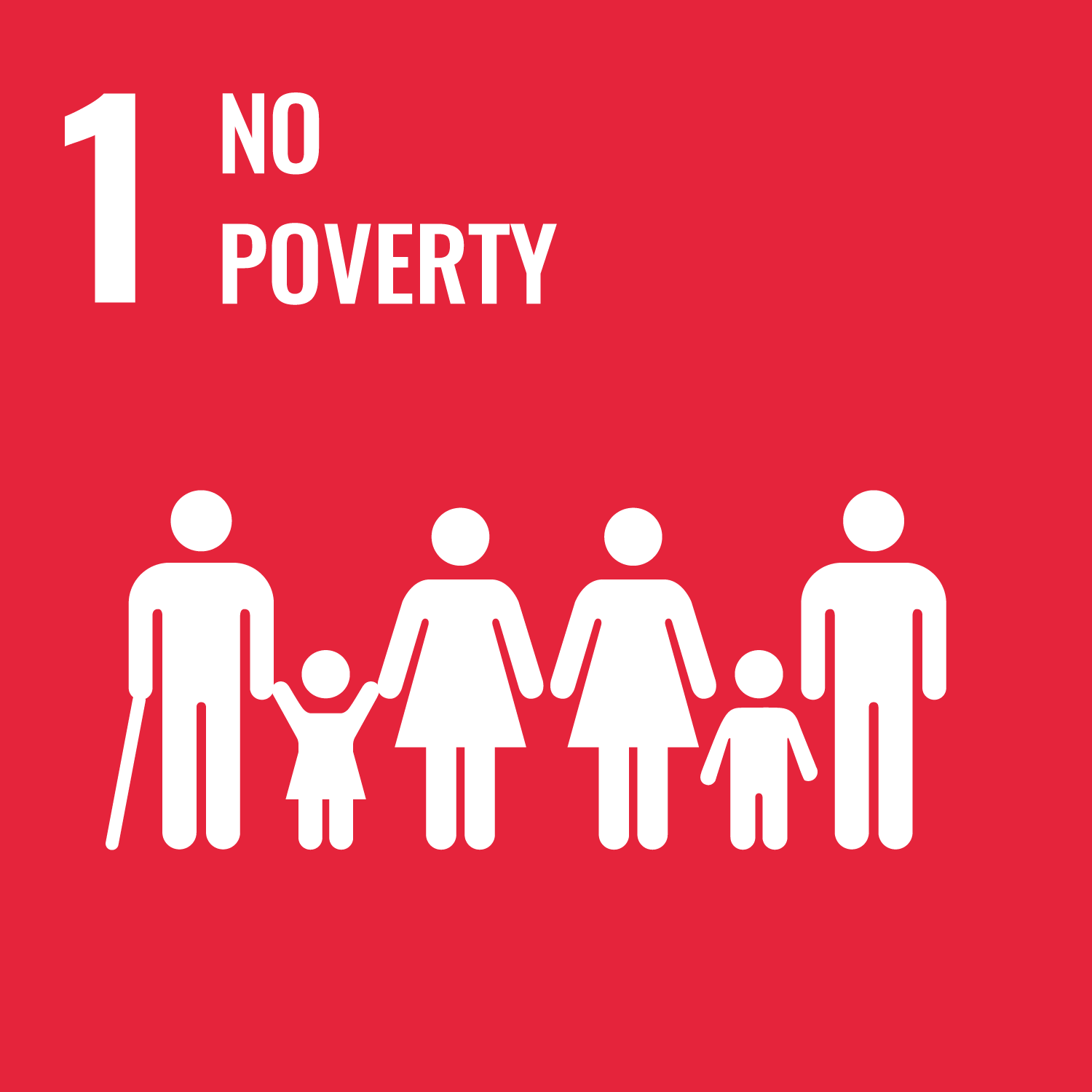
Related Indicators : 1.3.3, 1.3.4, 1.4.1, 1.4.2, 1.4.3, 1.4.4
Details :
Education is not confined within the walls of a classroom; it grows where knowledge meets purpose. At Rajamangala University of Technology Srivijaya (RUTS), teaching and learning are deeply intertwined with community engagement and the university’s mission to uplift lives through practical wisdom. The shrimp-paste development project in Trang Province stands as a vivid example of how teaching can extend beyond theory—where students learn by doing, and learning itself becomes a means to reduce poverty.
Under the leadership of Asst. Prof. Dr. Ananich Chumsri, the project “Creating Added Value for Shrimp Paste Products from Krill by Upgrading the Standards and Production Processes of Entrepreneurs to Become Identity Products of Trang Province” opened a living laboratory for students across disciplines. Those from Aquaculture, Food Science, Business Management, and General Education joined forces with local fishermen and small-scale producers to learn, research, and innovate side by side.
Through this collaboration, teaching evolved into experiential learning—a model where education emerges from real experience. Students engaged in field research in Had Yao and Koh Libong, learning about marine ecosystems, sustainable fishing, and the cultural significance of shrimp-paste production. They participated in testing water quality, observing processing methods, and documenting data that would inform quality improvement. In return, the villagers became teachers themselves, sharing generations of wisdom and local traditions that cannot be found in any textbook.
This mutual exchange between academia and community transformed both perspectives. For students, poverty and sustainability became tangible realities rather than abstract concepts. They learned that reducing poverty requires more than economic solutions—it requires empathy, cooperation, and innovation rooted in cultural understanding. For educators, the project reaffirmed the power of learning through service, where research and teaching unite to create real-world impact.
In the classroom, these experiences translated into deeper learning outcomes. Students reflected on how science and entrepreneurship could coexist for community well-being. They developed communication, problem-solving, and leadership skills, while internalizing values of integrity, responsibility, and respect for local identity. Many students reported that their participation inspired them to pursue careers in sustainable development and community-based business—an indicator that teaching at RMUTSV nurtures both the mind and the heart.
Beyond academic growth, the project also addressed educational equity. Students from low-income backgrounds were given opportunities to work as research assistants under NRCT funding, earning stipends that supported their education while gaining hands-on experience. This model directly supports SDG Indicators 1.3.3 and 1.3.4, ensuring that financial hardship does not prevent capable learners from completing their studies.
Moreover, by integrating sustainability topics into the curriculum, the project aligns with SDG 4 (Quality Education), particularly indicators 4.4 and 4.7, which emphasize equipping learners with skills for employment, entrepreneurship, and responsible citizenship. Through multidisciplinary collaboration, students realized that education is not simply about obtaining degrees—it is about becoming catalysts of positive change.
In essence, the shrimp-paste project transformed teaching and learning into an ecosystem of growth. Students, teachers, and villagers became partners in discovery. Each activity—whether testing water samples, designing packaging, or sharing meals after long field days—became an act of mutual learning and solidarity. The classroom expanded into the community; the community, in turn, entered the classroom.
Such experiences illustrate RUTS’s educational philosophy: “Learning by Doing, Growing by Giving.” By embedding sustainability and compassion at the core of its teaching practices, the university ensures that every student not only gains knowledge but also understands its purpose—to uplift lives, strengthen communities, and contribute to a world where poverty is not merely studied, but actively overcome.
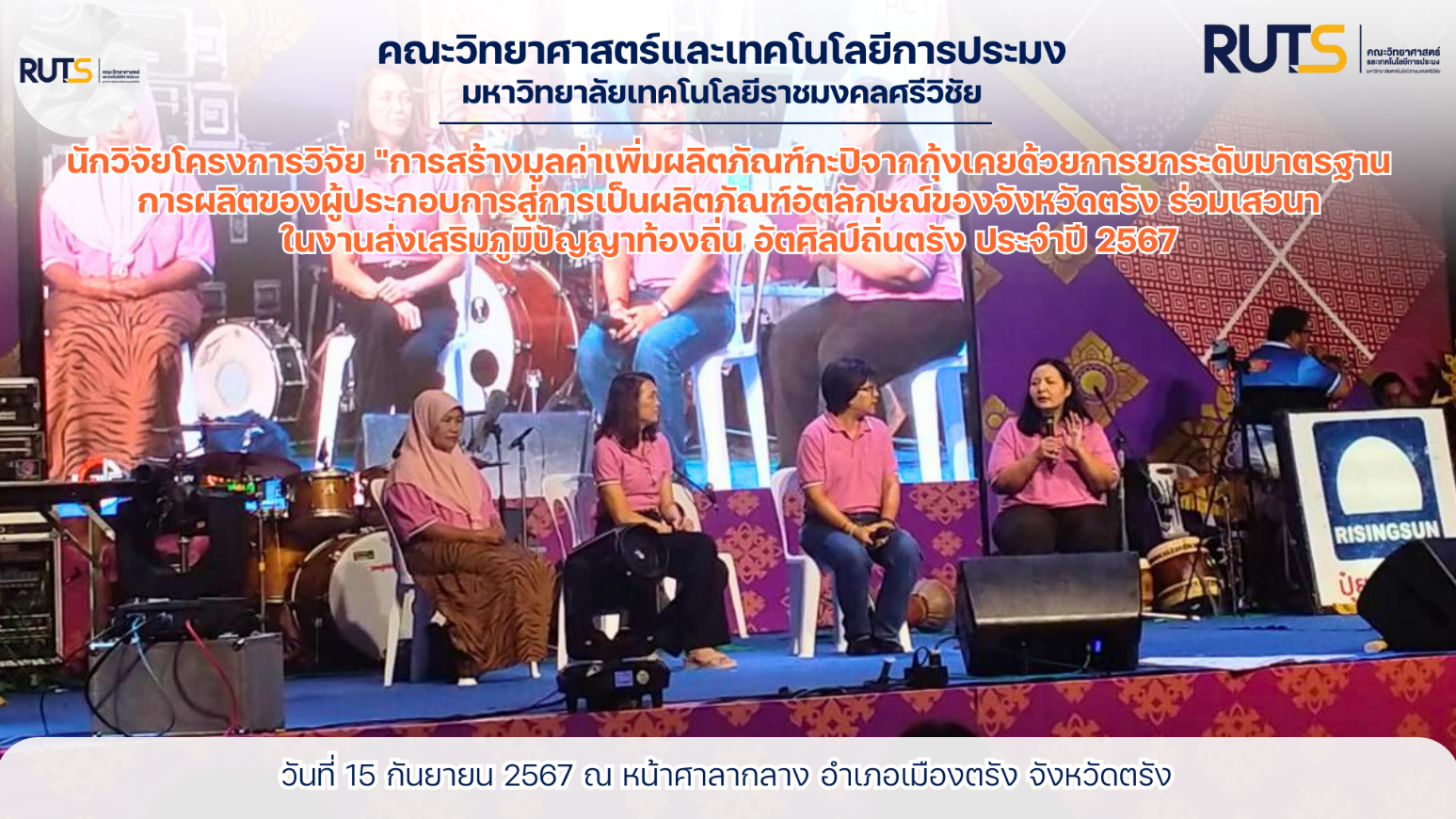
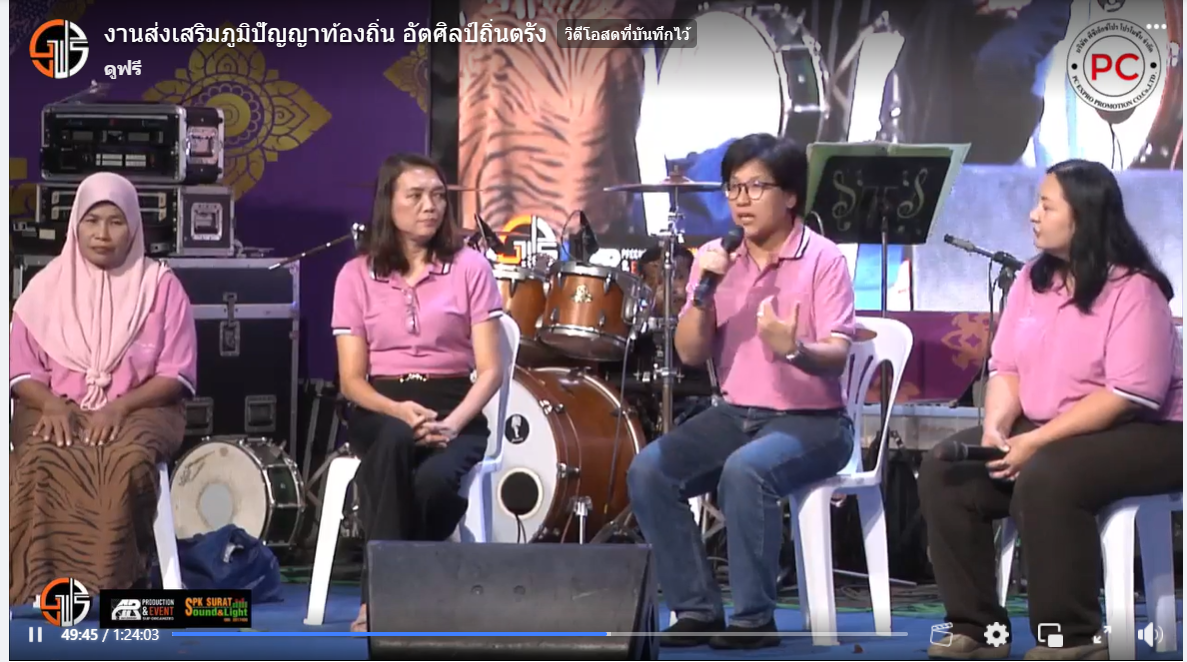
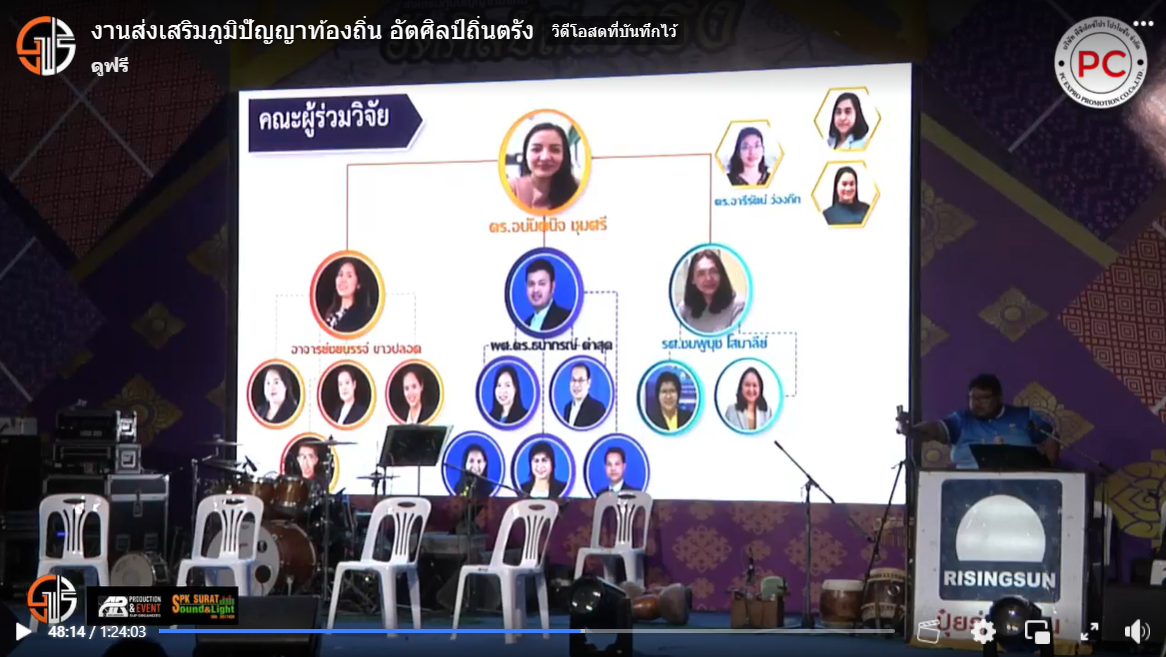
Related Link
รับชมการถ่ายทอดสอดการเสวนา ช่วงเวลาที่ 45.08 นาที https://www.facebook.com/share/v/WN6hNPy8b72mRdsd/



